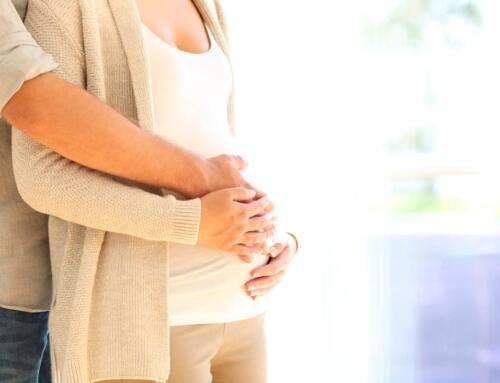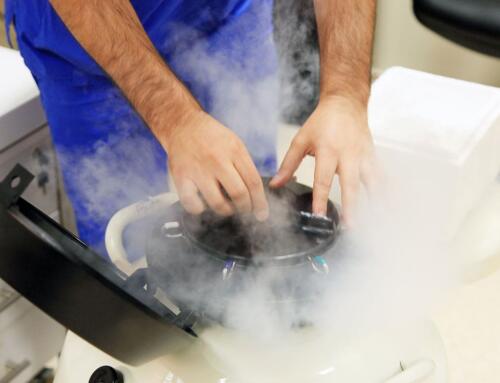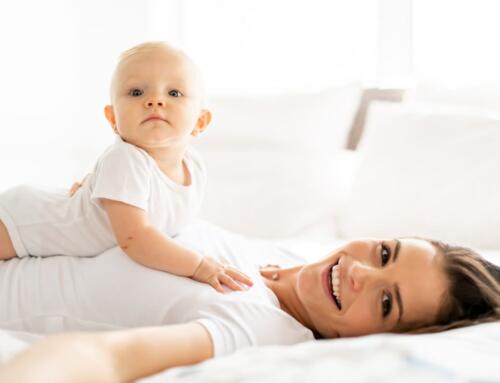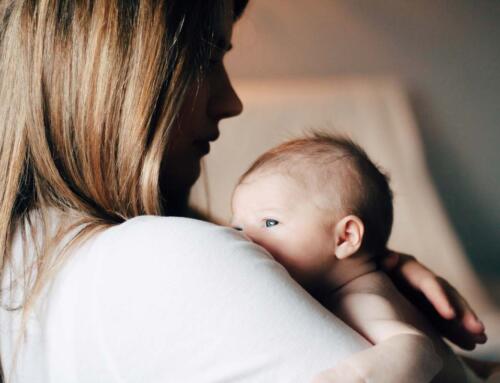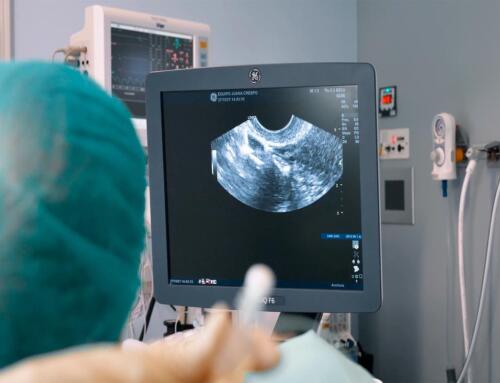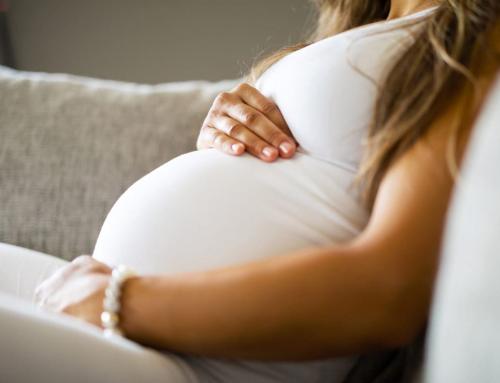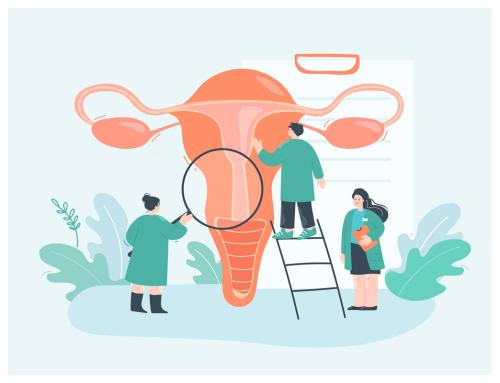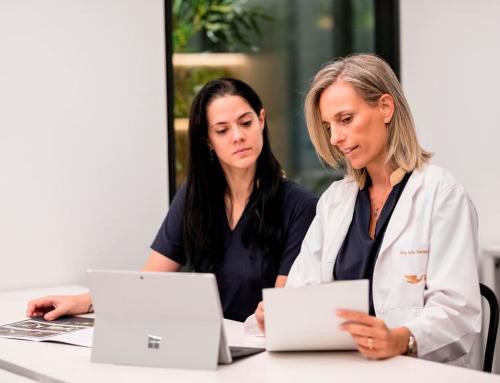Although there are physical signs that help us guess when ovulation is taking place (changes in vaginal discharge, abdominal discomfort, changes in basal temperature, etc.) to determine when a woman ovulates and, therefore, her fertile days, it is important to know how the menstrual cycle works and the hormonal changes that occur to release the egg.
What is the menstrual cycle?
The menstrual cycle is a hormonal process that prepares a woman’s body for a possible pregnancy. Throughout the menstrual cycle, the sex hormones (estrogen and progesterone) cause the egg to be stimulated, grow in the ovary and be released, prepare the uterus to facilitate possible embryo implantation and, if fertilization does not occur, cause the lining of the uterus to shed (menstruation) and a new cycle to begin.
The length of the menstrual cycle starts the first day of menstruation until the first day of the next menstrual period. Normally, it lasts an average of 28 days, although it can be longer or shorter. Regular menstrual cycles last between 21 and 35 days.
What are the phases of the menstrual cycle?
Menstruation
Menstruation happens when vaginal bleeding is caused by the shedding of the internal tissues that line the uterus. In this phase of the menstrual cycle, the levels of estrogen and progesterone are low. Menstruation usually lasts between three and five days, although it depends on each woman.
Follicular Phase (Pre-ovulatory)
This phase begins just after menstruation (around the sixth day of the cycle). It involves an increase in follicle-stimulating hormone (FSH), which is intended to stimulate the growth of immature ovarian follicles in the ovary.
Ovulatory Phase (Ovulation)
During the ovulation phase, the maturation of the egg is completed and it is released through the Fallopian tubes. Normally, ovulation occurs once in every menstrual cycle, around day 14, and is when female fertility is at its maximum. Still, some women naturally ovulate twice in the same cycle. In these cases, the “double ovulation” is practically simultaneous and there is a greater risk of multiple pregnancy.
Luteal Phase (Post-Ovulation)
The luteal phase begins just after ovulation and lasts until the end of the menstrual cycle. In it, the follicular structure that remains in the ovary after the egg is expelled becomes a gland known as the “corpus luteum” which is responsible for producing estrogen and progesterone. These two hormones act on the endometrium, which becomes thicker and spongier as a result of increased blood flow. The main goal of this irrigation is to create a more receptive environment that facilitates the implantation of the embryo.
Ischemic Phase
If the egg is not fertilized in the hours following ovulation, it ages and cannot be fertilized. As a consequence, the corpus luteum disappears and the production of estrogen and progesterone gradually decreases. The reduction of sexual hormones causes the endometrium to shed and detach, initiating a new cycle and, with it, a new menstruation.
Does ovulation coincide with the “fertile window”?
Ovulation is closely related to the “fertile window”. In fact, ovulation conditions a woman’s fertile period. However, the two concepts are not synonymous.
Ovulation refers only to the release of the egg. This moment is practically instantaneous: the follicle breaks and the egg is expelled into the Fallopian tube. Fertilization must take place within 24 hours.
Obviously, knowing when a woman ovulates allows us to detect her moment of greatest fertility. However, the sperm remain active for longer, even for five days. This means that a couple can conceive if they have sexual relations four-five days before ovulation and one day after it.
On a practical level, a woman’s “fertile period,” considering the life of the sperm and the egg, lasts about six days. In this sense, “fertile days” of the menstrual cycle are all those in which there is a probability of pregnancy.
What happens when a woman ovulates? How do I know if I’m ovulating?
The length of the menstrual cycle varies greatly from one woman to another, and even from one cycle to another. That’s why it’s relatively difficult to predict exactly when ovulation will occur, even in women with regular periods. However, this information is important if we want to calculate our fertile days.
Ovulation has no defined symptoms. In fact, many women are not aware that they are ovulating. In other cases, however, hormonal changes cause more obvious alterations in the body that may indicate the beginning of ovulation. These changes are:
- Changes in vaginal discharge and cervical mucus.
Throughout the menstrual cycle there are changes in the texture and consistency of the vaginal discharge due to different levels of estrogen. Normally, before and during ovulation, the flow is more abundant, liquid and transparent to facilitate the passage of sperm.
- Increase in basal temperature (TB).
Basal temperature is the lowest temperature reached by the body at rest. Due to progesterone levels, basal temperature increases slightly during the days prior to ovulation. This increase is between 0.4ºC and 1ºC and, although it is practically negligible in daily life, its daily control can indicate the moment of ovulation.
- Increase in luteinizing hormone (LH).
This is the most reliable way to calculate when a woman ovulates. This hormone is responsible for triggering ovulation and controlling progesterone secretion. Its levels begin to rise 36 hours before ovulation and peak in the 12 hours prior to ovulation.
The luteinizing hormone can be detected in the urine between 24 and 36 hours before ovulation. Ovulation tests are based on this calculation and are currently a simple and reliable method of predicting when a woman will ovulate.
During the days prior to ovulation some women also experience abdominal discomfort, sensation of pain and tension in the chest, small cramps in the pelvic area, slight vaginal bleeding and increased sexual desire.
If you want to be able to know when you are ovulating in order to plan a pregnancy, our advice is to visit a professional. At Equipo Juana Crespo we are specialists in fertility, and we will be happy to help you.



